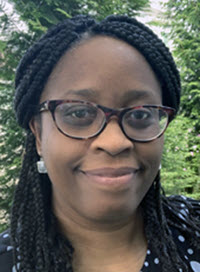Abstract
Excerpted From: Keeshea Turner Roberts, Reparations Can Mitigate Wealth Inequity, 48 Human Rights 20 (2023) (Full Document)
 Thousands of people marched and protested locally, nationally, and globally in the days and weeks after the senseless murder of George Floyd at the hands of a Minneapolis, Minnesota, police officer. This murder, more than other murders, seemed to compel an internal examination of what it means to be an American in the midst of continued racial inequity and lack of justice in “post-racial” America. As the nation grappled with relentless murders of unarmed African American men and women, COVID-19 swept through the nation, resulting in millions of Americans losing their jobs, housing, and, for some of them, their lives. COVID-19 especially affected the African American community and exposed a significant wealth disparity between African Americans and white Americans. The African American community “lack[s] sufficient income and wealth to buffer both the job loss and the economic crisis that have resulted from the ... pandemic.” It was in this climate that there was a renewed call for reparations for African Americans not only locally, but nationally, to address the wealth disparities highlighted by the pandemic.
Thousands of people marched and protested locally, nationally, and globally in the days and weeks after the senseless murder of George Floyd at the hands of a Minneapolis, Minnesota, police officer. This murder, more than other murders, seemed to compel an internal examination of what it means to be an American in the midst of continued racial inequity and lack of justice in “post-racial” America. As the nation grappled with relentless murders of unarmed African American men and women, COVID-19 swept through the nation, resulting in millions of Americans losing their jobs, housing, and, for some of them, their lives. COVID-19 especially affected the African American community and exposed a significant wealth disparity between African Americans and white Americans. The African American community “lack[s] sufficient income and wealth to buffer both the job loss and the economic crisis that have resulted from the ... pandemic.” It was in this climate that there was a renewed call for reparations for African Americans not only locally, but nationally, to address the wealth disparities highlighted by the pandemic.
[. . .]
The late Congressman John Conyers Jr.'s push for reparations to address racial and social injustices that African American citizens, including himself, endured since this country's founding has not yet been successful nationally as Conyers would have wanted. However, localities and other entities such as colleges/universities and religious organizations have been at the forefront in addressing the root causes of inequity and provide a variety of solutions that benefit not only African Americans but also the community at large.
The author would like to thank her research assistant, Angelica N. Richardson, for assisting with the legal research for this piece.
Keeshea Turner Roberts is an assistant professor of law at Widener University Delaware Law School. She also serves as a member of the Human Rights editorial board.


